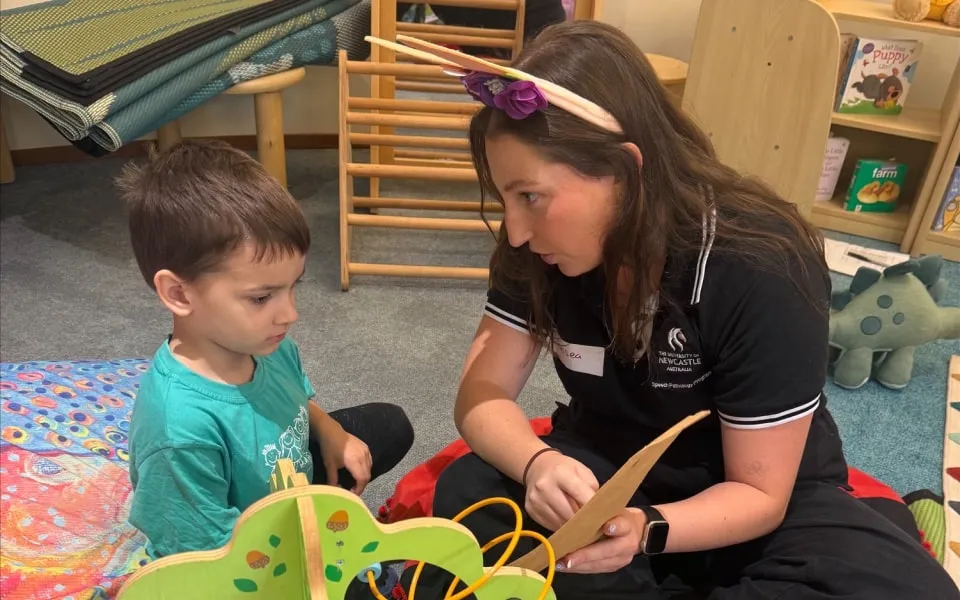
Empowering voices: Expanding speech pathology support through the SPEIRS Program

The Aspen Medical Foundation is proud to support the University of Newcastle’s transformative SPEIRS Program, a groundbreaking initiative delivering early intervention speech pathology services directly into rural and regional communities across New South Wales. Co-funded with the Vonwiller Foundation, SPEIRS exemplifies how targeted philanthropy can address health inequities, empower families and train the next generation of allied health professionals.
In 2024, the Aspen Medical Foundation committed $45,000 over three years to support the SPEIRS Program. This funding enables final year speech pathology students from the University of Newcastle to undertake supervised clinical placements in community-based playgroups throughout the greater Hunter region.
These playgroups serve communities with high numbers of Aboriginal and Torres Strait Islander children groups at increased risk of speech and language delays due to reduced access to early healthcare.
Children in rural and regional areas are more than twice as likely to be developmentally vulnerable than their metropolitan peers. Yet only 11 per cent of certified speech pathologists work outside urban centres. Long waitlists, high costs and geographic isolation mean many children miss out on critical early intervention.
SPEIRS responds by placing services where they’re needed most in playgroups where families already gather. Children aged 0–3, in their most crucial developmental years, are screened, supported and referred by student clinicians working under professional supervision.
Each semester, two final year students are placed in regional playgroups for eight weeks. They conduct developmental checks, provide strategies to parents and gather data on speech and language development. Students receive cultural training and trauma informed practice education to ensure their work is culturally safe and respectful.
Fourth-year student Shayla shared:
“In a previous placement, I supported children facing trauma, family instability and language delays. That experience sparked my passion for early intervention. SPEIRS allowed me to take that passion further especially in communities that really need it.”
Families report the SPEIRS program has made a big difference:
“The most significant change is that more people can access speech pathology. There are such long waitlists it was great to get help.”
“Last year, I was so worried. My daughter wasn’t talking at all. Then she suddenly started using words now she’s confident, just shy with new people.”
Educators echo this positive impact:
“It lightened the load for carers and gave them a safe space to ask questions.”
“Having speech support so accessible made a real difference.”
SPEIRS not only delivers services, it builds capacity. Parents, carers and educators learn how to recognise early signs of difficulty and how to support communication every day. Students, meanwhile, gain hands-on experience in rural health and become better equipped to navigate complex service barriers.
As one student put it:
“This placement deepened my understanding of the challenges regional families face. I now know how to guide families to practical solutions like telehealth or community services.”
The University of Newcastle is expanding SPEIRS, securing new partnerships and evaluating outcomes to embed speech pathology as a permanent feature of early childhood support.
By investing in this program, the Aspen Medical Foundation is helping to create a future where no child is left behind due to postcode or background and where aspiring health professionals are inspired and equipped to serve where the need is greatest.
Empowering children, supporting families and strengthening communities one word at a time.

